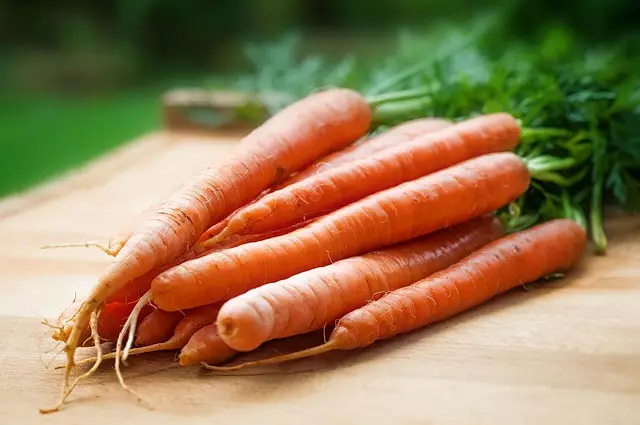Dogs, like their human companions, can experience a variety of ocular diseases and complications. While they are well-known for their incredible sense of smell, their eyesight plays a vital role in their overall well-being and happiness. Given the importance of vision in our pets, it’s essential to consider ways to support their ocular health through diet. This article explores nine nutrient-dense foods that can significantly contribute to improving your dog’s eye health.
Blueberries are not just a popular snack for humans; they are also packed with eye-healthy nutrients for dogs. These small berries are rich in flavonoids like resveratrol, quercetin, and rutin, which have the potential to stave off conditions like macular degeneration. Additionally, blueberries contain anthocyanins, phytonutrients known to safeguard night vision—a crucial aspect of overall canine health. Supplementing your dog’s diet with blueberries, whether fresh or frozen, can provide a tasty and beneficial treat.
Tomatoes are often celebrated for their health benefits due to their high lycopene content, a powerful phytonutrient that helps protect against eye damage and degenerative diseases. This carotenoid is more effective when tomatoes are cooked, making it a smart choice to prepare tomato paste and freeze it in ice trays for convenience. When combined with lutein, another beneficial phytonutrient present in tomatoes, these make a fantastic addition to your dog’s meal plan.
With the growing popularity of superfoods, kale has emerged as a powerhouse packed with antioxidants. According to the American Optometric Association, both lutein and zeaxanthin found in kale function as “internal sunglasses,” providing essential protection for your dog’s eyes. Furthermore, the beta-carotene in kale combats oxidative stress. A simple and delicious way to incorporate kale into a dog’s diet is to bake it after drizzling with coconut oil, turning it into a crunchy treat.
Broccoli should not be overlooked when currating a dog’s diet for eye health. Rich in beta-carotene, zeaxanthin, and lutein, this cruciferous vegetable contributes substantially to eye protection. Additionally, it contains sulforaphane, which bolsters the immune system against free radicals. For optimal access to nutrients, light boiling for a few minutes is recommended. If the texture isn’t appealing to your dog, consider adding the water from boiled broccoli to their usual meals for an easy health boost.
The myth that carrots are excellent for vision isn’t without merit. They provide a wealth of nutrients, including lycopene, lutein, and an impressive array of vitamins and minerals. Rich in beta-carotene, they help maintain the retina’s health and improve overall vision. Offering carrots in various forms—cooked, raw, or even as part of a homemade treat—can benefit your furry friend significantly.
Sweet potatoes are not just delicious; they are also brimming with anthocyanins, beta-carotene, and other beneficial compounds. These nutrients can aid in reducing inflammation and protecting ocular health. However, it is vital to prepare sweet potatoes correctly—never serve them raw. Steaming or baking them can create delightful snacks, which are not only nutritive but also quite palatable for dogs.
Pumpkin is a versatile food that can work wonders for your dog’s digestive system and ocular health. Loaded with beta-carotene and essential fatty acids, this vibrant vegetable offers a treasure trove of nutrients. Incorporating canned pumpkin into your dog’s diet can be an easy way to supplement meals. Additionally, roasting pumpkin seeds can provide a crunchy treat packed with omega-3s that enhance eye health.
Fish like salmon, tuna, and sardines are excellent sources of omega-3 fatty acids, which have been shown to promote retinal health and may prevent macular degeneration. Omega-3s contribute significantly to cell structure, particularly within the eyes. When serving fish to your dog, ensure it has been properly frozen beforehand to eliminate the risk of parasites, thus providing your pet with a nutritious meal that’s both safe and beneficial.
Finally, eggs can play a pivotal role in a dog’s eye health. Consuming just one egg a day can boost the levels of lutein and zeaxanthin, thus potentially reducing the risks of developingmacular degeneration. Furthermore, eggs contain essential components like cysteine and sulfur, which are critical in preventing cataract formation. They can be served either raw or lightly cooked for the most benefits.
Maintaining your dog’s eye health is an attainable goal when equipped with the right knowledge about nutrition. By incorporating these top nine foods into their diet, you can create a tasty and eye-friendly menu that will help protect and enhance their vision for years to come. Always consult your veterinarian before making any significant dietary changes to ensure the best health outcomes for your beloved pet.

